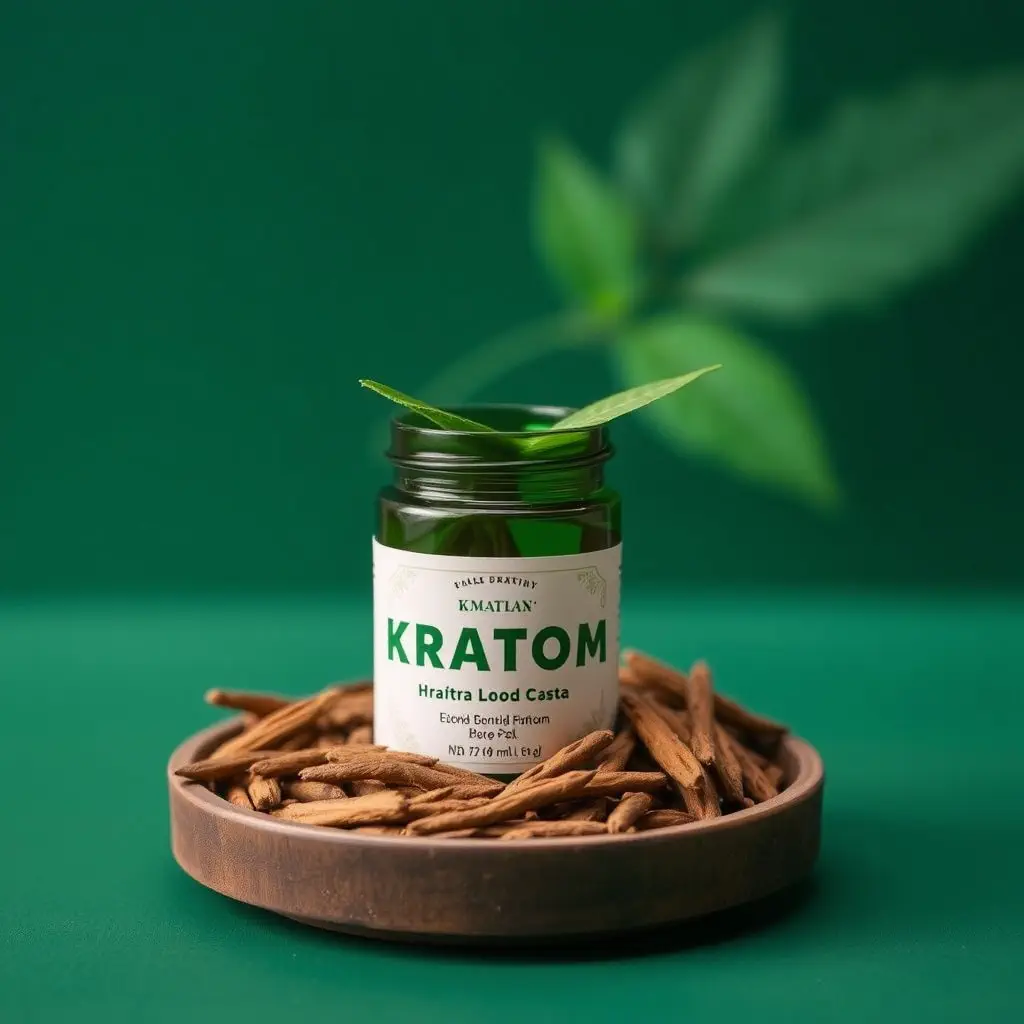Athletes looking to optimize their performance through strategic sports nutrition must focus on a balanced intake of macronutrients—carbohydrates, proteins, and fats—tailored to their activity levels. Proper hydration and electrolyte balance are equally crucial for energy maintenance, thermoregulation, and injury prevention. Pre- and post-exercise nutrition is particularly vital for sustaining energy during workouts and aiding muscle recovery afterward. For those considering Kratom as an ergogenic aid, it's important to store it correctly—cool, dry, and away from light and moisture—to maintain its potency. However, one must ensure that the use of Kratom is legal in their jurisdiction before incorporating it into their regimen, as regulations vary. When used responsibly under professional guidance, Kratom may offer benefits for endurance, stamina, and recovery. Adequate vitamin and mineral intake, including vital nutrients like vitamin D and magnesium, is essential for overall health, immune system support, and muscle function. B vitamins are particularly important for athletes with high energy demands. Additionally, supplements like BCAAs can enhance muscle protein synthesis during exercise, while electrolyte solutions help maintain fluid balance and prevent cramps. The quality and purity of sports supplements, including Kratom, should be carefully considered to ensure efficacy and safety. Incorporating these elements into a cohesive sports nutrition strategy is key for athletes aiming to achieve peak physical conditioning.
Engaging in sports at peak physical condition is a blend of rigorous training, strategic nutrition, and meticulous supplementation. This comprehensive article delves into the intricacies of optimizing athletic performance through tailored sports nutrition. We’ll explore the critical role of macronutrients and hydration in maintaining top-tier fitness, and investigate the myriad benefits of supplementing with key vitamins and minerals. Whether you’re a seasoned athlete or an aspiring fitness enthusiast, understanding how to store and preserve Kratom can be pivotal in your nutritional regimen. Join us as we dissect the science behind fueling your body for success in sports.
- Optimizing Athletic Performance with Strategic Sports Nutrition
- The Role of Macronutrients and Hydration in Peak Conditioning
- Supplementing for Success: Vitamins, Minerals, and Beyond in Sports Nutrition
Optimizing Athletic Performance with Strategic Sports Nutrition

Athletes and fitness enthusiasts alike recognize that peak physical conditioning is not solely contingent on rigorous training regimes but also hinges significantly on strategic sports nutrition. Adequate nutrition plays a pivotal role in optimizing athletic performance by providing the necessary fuel for energy, supporting recovery, and maintaining overall health. To this end, athletes must consider the timing and composition of their diets to ensure they are maximizing their nutrient intake. Macronutrients such as carbohydrates, proteins, and fats should be carefully balanced according to the athlete’s specific needs and activity levels. For instance, consuming easily digestible carbohydrates before and during high-intensity workouts can help maintain blood glucose levels, preventing fatigue. Similarly, post-exercise nutrition is crucial for muscle repair and growth, with a focus on protein-rich foods. Hydration status is equally critical; staying well-hydrated can enhance performance, improve thermoregulation, and reduce the risk of injury.
In addition to meal planning, understanding how to store and preserve nutrients, including supplements like Kratom, is essential for consistent performance. Kratom, a natural supplement derived from the leaves of the Mitragyna speciosa tree, has gained attention in sports nutrition for its potential ergogenic benefits. Proper storage of Kratom, typically in a cool, dry place away from light and moisture, can help preserve its potency and effectiveness. Athletes should also be aware of the legal status of Kratom in their jurisdiction before incorporating it into their regimen, as its use is subject to regulatory restrictions in some regions. By integrating well-stored Kratom, if permissible and after consultation with a healthcare professional, into a comprehensive sports nutrition plan, athletes can potentially enhance endurance, increase stamina, and promote recovery, all of which contribute to optimizing their performance on the field or in the gym.
The Role of Macronutrients and Hydration in Peak Conditioning

Athletes and individuals striving for peak physical conditioning must pay meticulous attention to their sports nutrition, particularly the role of macronutrients and hydration. Macronutrients, namely carbohydrates, proteins, and fats, play a pivotal role in energy production, muscle repair, and overall well-being. Carbohydrates are the body’s primary source of energy during high-intensity activities, thus their timing and quantity must be carefully calculated to optimize performance without causing unwanted weight gain. Proteins are essential for muscle growth, recovery, and maintenance, making them crucial before and after training sessions. Fats are vital for long-term energy storage and hormonal balance. Ensuring a balanced intake of these macronutrients not only supports physical performance but also contributes to the athlete’s ability to train consistently and effectively.
Hydration is another critical component of sports nutrition that cannot be overlooked. Water loss through sweat can lead to dehydration, which impairs physical performance and recovery. Athletes must replace fluids lost through perspiration to maintain optimal hydration status. Electrolyte balance is also paramount as it regulates fluid balance, muscle contractions, and nerve function. The use of sports drinks can be beneficial during prolonged exercise, as they often contain carbohydrates and electrolytes that aid in performance and recovery. Proper hydration strategies, including timely fluid intake before, during, and after exercise, are essential for maintaining peak conditioning. It’s also important to note the role of How To Store And Preserve Kratom in maintaining overall health and well-being, as it can influence an individual’s energy levels and focus, indirectly affecting their sports performance. Ensuring that kratom is stored properly to maintain its potency and efficacy is a factor that should be considered within a holistic approach to nutrition for peak physical conditioning.
Supplementing for Success: Vitamins, Minerals, and Beyond in Sports Nutrition

Achieving peak physical conditioning through sports nutrition is a multifaceted endeavor that extends beyond the mere intake of energy-dense foods. Supplementing with vitamins and minerals plays a pivotal role in supporting an athlete’s performance, recovery, and overall health. Vitamins such as vitamin D, which is crucial for bone health and immune function, should be maintained at optimal levels through a combination of dietary intake and sunlight exposure. Similarly, minerals like magnesium are essential for muscle function, nerve transmission, and energy production. Ensuring adequate intake of these micronutrients can be achieved through a well-planned diet, but supplementation may be necessary to compensate for gaps in nutrition. For instance, B vitamins are known to support energy metabolism and cellular function, which are particularly important for endurance athletes.
Beyond the basics of vitamins and minerals, sports nutrition encompasses a broader range of supplements tailored to specific performance needs. Branched-chain amino acids (BCAAs), for example, are often used to support muscle protein synthesis during endurance exercises. Protein supplementation is also key for muscle repair and growth post-exercise. Additionally, hydration cannot be overlooked; electrolyte solutions help replace minerals lost through sweat, maintaining fluid balance and preventing cramps.
In the realm of supplementation, it’s crucial to consider the quality and purity of the products used. This is where proper storage and preservation techniques become essential, particularly for sensitive compounds like kratom. How to store and preserve kratom effectively ensures its potency and efficacy, which can be a valuable addition to an athlete’s regimen due to its potential benefits on pain relief and mood enhancement. Proper storage not only maintains the integrity of the supplement but also safeguards against contamination, ensuring that athletes reap the full benefits of their nutritional efforts.
In conclusion, achieving peak physical conditioning through strategic sports nutrition is a multifaceted endeavor that involves optimizing athletic performance with precise nutrient timing and intake. Understanding the role of macronutrients and hydration in maintaining peak conditioning is crucial for athletes seeking to enhance their performance and recovery. Additionally, supplementing with key vitamins and minerals can provide an edge, ensuring that all physiological systems are functioning at their best. By integrating these nutritional strategies effectively, athletes can significantly improve their outcomes in their respective sports. Similarly, those interested in how to store and preserve kratom should follow specific guidelines to maintain its potency and efficacy, a topic of growing importance in the realm of natural performance enhancers. As with any high-performance regimen, consistency and personalization are key to unlocking the full potential of sports nutrition.






